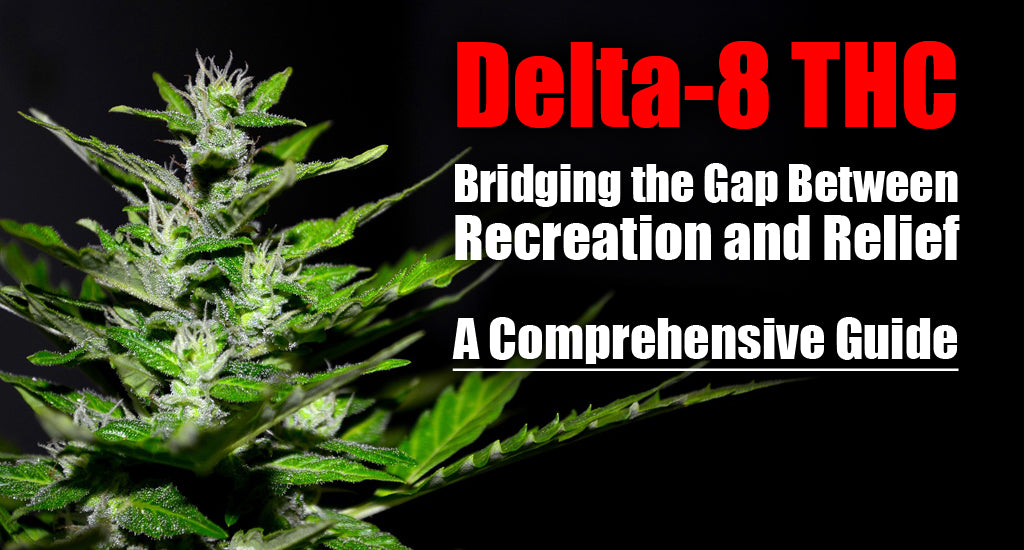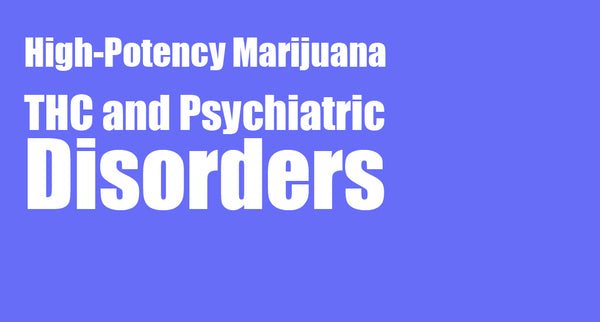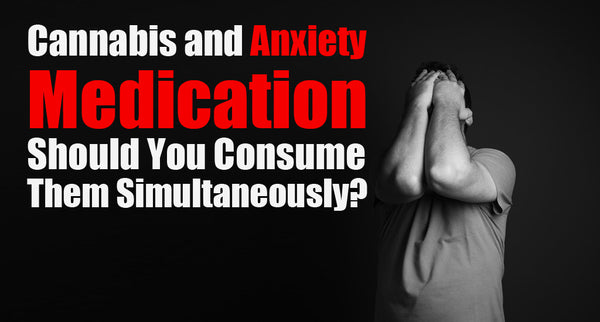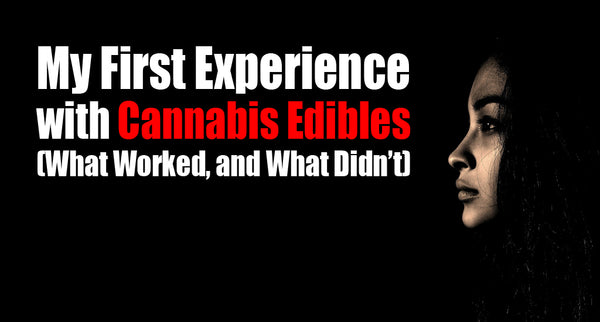
Delta-8 THC: Bridging the Gap Between Recreation and Relief - A Comprehensive Guide
Delta-8 THC, a cannabinoid in hemp and cannabis, offers a less intense high, making products like gummies and vape cartridges increasingly popular. It's sought for potential relief from stress, depression, and chronic pain, yet its therapeutic benefits and long-term effects are not well-documented in scientific literature. This gap in research underlines the need for cautious exploration and understanding of Delta-8 THC's properties and impacts.
The Essence of Cannabinoids
Cannabinoids, the active chemical compounds found in cannabis plants, are diverse in their effects and potential health benefits. With over a hundred types identified, they interact with the body's endocannabinoid system, influencing various physiological processes.
THC and CBD are the most prominent, with THC known for its psychoactive properties and CBD for its non-psychoactive effects. These cannabinoids have been explored for therapeutic use, such as in the treatment of seizures and managing nausea and vomiting from chemotherapy. The complexity and variety of cannabinoids contribute to ongoing research into their medical applications, safety, and efficacy, underscoring the potential of cannabis-derived compounds in therapeutic settings.
Beyond THC and CBD, other lesser-known cannabinoids like CBN (Cannabinol) and CBG (Cannabigerol) are also gaining attention for their unique effects and potential health benefits, including sleep aid and anti-inflammatory properties, respectively. This burgeoning field of study continues to unveil the nuanced interactions between cannabinoids and the human body, promising new avenues for medical treatment and understanding of human physiology.
Delta-8 THC vs. Other Cannabinoids
In the diverse world of cannabis compounds, Delta-8 THC stands out for its nuanced position within the plant's chemical ecosystem. The comparison between Delta-8 THC and its cannabinoid cousins not only illuminates its distinctive psychoactive and therapeutic profile but also underscores the intricate balance of effects that cannabis can produce.
This juxtaposition serves to enhance our understanding of how slight molecular variations can result in significantly different impacts on the human body and mind. As research continues to delve into the complexities of cannabis chemistry, Delta-8 THC's role exemplifies the potential for both scientific discovery and practical application, offering a glimpse into the broader therapeutic and experiential spectrum that cannabis compounds inhabit.
-
Chemical Structure: Delta-8 THC is chemically similar to Delta-9 THC, sharing the same molecular skeleton but differing slightly in the positioning of its double bond. This minor difference significantly impacts its psychoactive effects.
-
Psychoactive Effects: Unlike Delta-9 THC, known for its potent psychoactive effects, Delta-8 THC provides a milder, more manageable high. Users report feeling clarity and relaxation without the intense euphoria or potential anxiety and paranoia associated with high doses of Delta-9 THC.
-
Comparison with CBD: CBD, another well-known cannabinoid, is celebrated for its therapeutic benefits without the psychoactive effects. Delta-8 THC, while psychoactive, is seen as a middle ground, offering some of CBD's calming effects with a gentle euphoric feeling.
-
Legality and Availability: Delta-8 THC occupies a gray area in terms of legality in some regions, given its psychoactive nature but derived from hemp, which is federally legal in the United States under certain conditions. This contrasts with Delta-9 THC's stricter regulations.
-
Therapeutic Potential: Both anecdotal reports and emerging research suggest Delta-8 THC may have several therapeutic benefits, including anti-nausea, anti-anxiety, and appetite stimulation properties, making it an area of growing interest for medical research.
Delta-8 THC's balanced psychoactive profile and potential therapeutic applications make it a subject of interest for both consumers seeking a less intense alternative to Delta-9 THC and researchers exploring its medical benefits. Always refer to the latest studies and legal statuses in your area for the most current information.
Usage of Delta-8 THC
The utilization of Delta-8 THC has seen a significant rise, attributed to its unique effects and versatility in consumption methods. This cannabinoid, distinguished by its milder psychoactive properties compared to Delta-9 THC, is embraced by consumers for various reasons, including its potential therapeutic benefits and less intense high. Here's a more detailed look:
-
Edibles (Especially Gummies): Delta-8 THC infused gummies are favored for their convenience, discreetness, and ease of dosing. Each gummy typically contains a precise amount of Delta-8, allowing users to manage their intake effectively. However, the lack of strict regulation around these products prompts concerns regarding their purity and safety. It's essential for consumers to source their edibles from reputable vendors.
-
Tinctures: Delta-8 THC tinctures offer a sublingual method of consumption, where the compound is absorbed directly into the bloodstream via tissues under the tongue. This method allows for quick onset of effects and easier dose adjustment.
-
Vape Concentrates: Vaping Delta-8 THC provides rapid relief and control over dosage. The effects are almost immediate, making it a preferred method for users seeking quick effects. Nonetheless, the safety of vaping, given potential contaminants and the impact of heating compounds, remains a topic of discussion.
-
Topicals: For those seeking localized relief without psychoactive effects, Delta-8 THC topicals—such as creams, balms, and lotions—are applied directly to the skin. While they may offer anti-inflammatory and pain-relief benefits, topicals generally do not enter the bloodstream or induce the high associated with other methods.
Key Considerations
-
Start Low and Go Slow: Given the variability in individual responses to Delta-8 THC, the recommended approach is to start with a low dose. Users should wait to gauge the effects before potentially increasing their dosage.
-
Regulation and Safety: The nascent state of regulation around Delta-8 THC products means that quality and safety can vary widely between products and brands. Consumers should conduct thorough research, read reviews, and possibly consult healthcare professionals before trying new products.
As the landscape of cannabis research and legislation evolves, so too will our understanding and regulation of Delta-8 THC products. Always stay informed with the latest guidelines and research to ensure a safe and positive experience.
Delta-8 THC Proper Dosage
Determining the proper dosage of Delta-8 THC can be complex due to individual differences in body chemistry, tolerance levels, and the method of consumption. However, there are general guidelines that can help users start safely and find the dosage that best meets their needs:
-
Start Small: For those new to Delta-8 THC, it's advisable to begin with a very low dose. This could mean taking a small fraction of a gummy (such as a quarter or half of a gummy that contains 10 to 25 mg of Delta-8 THC), a single small puff from a vape, or a few drops of a tincture. The idea is to start with the lowest possible dose that might still offer therapeutic benefits or the desired effect.
-
Wait and Observe: After taking the initial dose, it's important to wait for a significant period to observe its effects. This waiting period can vary depending on the consumption method—edibles can take 1 to 2 hours to take effect, while inhaled products might show effects within minutes. Users should wait and monitor how they feel before considering taking an additional dose.
-
Gradually Adjust: If the initial low dose does not achieve the desired effects after a reasonable waiting period, users may consider gradually increasing the dosage in small increments in subsequent sessions—not during the same session. This careful, gradual approach helps to identify the minimum effective dose without overshooting to discomfort.
-
Consult with a Professional: Particularly for individuals seeking to use Delta-8 THC for specific health concerns, consulting with a healthcare professional familiar with cannabis products can provide personalized advice and guidance.
-
Consider Tolerance: Regular users of Delta-8 THC may develop a tolerance over time, which could necessitate a higher dose to achieve the same effects. It's essential to periodically reassess dosage and potentially take tolerance breaks to maintain efficacy.
-
Legal and Quality Considerations: Ensure that the products used are from reputable sources that provide clear labeling and third-party testing results to guarantee the product's purity and potency. Additionally, be aware of the legal status of Delta-8 THC in your jurisdiction, as this can impact access and legality of use.
Remember, the optimal dosage of Delta-8 THC varies significantly from person to person, and finding it is often a personal journey of trial and observation.
Health Implications and Safety Concerns
As Delta-8 THC emerges as a popular cannabinoid alongside its more well-known relatives like CBD and Delta-9 THC, it brings with it a complex mix of potential benefits and risks that are increasingly coming under the spotlight.
With its legal ambiguity and presence in a variety of consumer products, Delta-8 THC attracts users with its promise of a milder high and possible therapeutic effects. However, this burgeoning interest is matched by growing concerns over the lack of comprehensive research into its long-term health implications, its psychoactive nature, and the safety of the products available in the market.
This initial enthusiasm for Delta-8 THC's advantages must be balanced with a careful consideration of the existing gaps in our understanding of its effects, highlighting the need for rigorous scientific study and regulatory oversight to ensure consumer safety.
-
Lack of Research: Despite anecdotal claims of Delta-8 THC's effectiveness in alleviating nausea, enhancing appetite, and providing pain relief, there is a significant gap in research to support these assertions comprehensively. The cannabinoid's interactions, long-term effects, and potential therapeutic applications require further scientific scrutiny to establish efficacy and safety profiles.
-
Reported Side Effects: Users have reported a range of side effects associated with Delta-8 THC, including but not limited to confusion, anxiety, and dizziness. These adverse reactions highlight the variability in individual tolerance and the potential risks involved in using Delta-8 THC, especially in unregulated doses.
-
Unregulated Market: The market for Delta-8 THC products is largely unregulated, leading to inconsistencies in product quality and potency. This lack of oversight raises concerns about the presence of contaminants, inaccurate labeling, and the use of harmful chemicals in the production process.
-
Consumer Vigilance: Given the unregulated nature of the Delta-8 THC market, consumers are advised to exercise caution when selecting products. It's crucial to research brands, request third-party lab testing results, and start with low doses to mitigate risks.
-
Legal and Regulatory Ambiguities: The legal status of Delta-8 THC remains ambiguous in several jurisdictions, complicating access and contributing to the challenges in regulating product safety and quality. Consumers need to stay informed about the legal landscape in their area to navigate the complexities of purchasing and using Delta-8 THC products responsibly.
While Delta-8 THC presents potential benefits, the current lack of comprehensive research, reported side effects, and the unregulated nature of the market necessitate a cautious approach from consumers. There's a clear need for further studies to delineate the cannabinoid's therapeutic potential and ensure consumer safety in the evolving landscape of cannabis-related products.
Legal Landscape
Delta-8 THC's journey through the legal landscape of the United States illustrates the complexities and challenges of regulating cannabis-derived substances in a rapidly evolving market. Here's a closer look:
-
Derived from Legal Hemp: Delta-8 THC is primarily produced from CBD extracted from hemp, a plant that was federally legalized by the 2018 Agriculture Improvement Act, commonly referred to as the Farm Bill. This law allows for the cultivation, sale, and use of hemp and hemp-derived products, provided they contain less than 0.3% Delta-9 THC by dry weight.
-
The Legal Loophole: The Farm Bill's language did not specifically mention Delta-8 THC, focusing instead on Delta-9 THC levels in hemp. This oversight created a legal loophole that has enabled the sale and use of Delta-8 THC products, despite their psychoactive properties.
-
State-by-State Regulations: In response to the federal ambiguity and growing concerns about the safety and regulation of Delta-8 THC products, several states have taken steps to restrict or outright ban its sale and use. The lack of uniformity in these regulations further complicates the legal status of Delta-8 THC, with it being fully legal, restricted, or banned depending on the state.
-
Safety and Regulatory Concerns: The rapid rise in the popularity of Delta-8 THC products has outpaced regulatory oversight, leading to concerns about product safety, quality, and labeling accuracy. Without comprehensive federal guidelines, the responsibility falls to states and consumers to navigate the murky waters of Delta-8 THC use.
-
Calls for Regulation: Health professionals, cannabis industry stakeholders, and some lawmakers are calling for clearer regulations on Delta-8 THC to ensure consumer safety, proper labeling, and quality control. There is a growing consensus that regulatory clarity would benefit both consumers and the industry by establishing standards and safeguards.
Delta-8 THC's legal status is a reflection of the broader challenges facing cannabis regulation in the U.S. As the market for Delta-8 THC continues to grow, so too does the call for a more unified and clear regulatory framework that can address the compound's unique position between hemp-derived legality and cannabis-derived psychoactivity.
States where Delta-8 THC is legal
Delta-8 THC's legal landscape across the United States is characterized by its availability in several states, though the regulatory framework remains in development. Understanding local laws is crucial due to the variance in legal status by state. Below is an overview of states where Delta-8 THC is currently legal, highlighting the diverse approaches to its regulation:
- Alaska: Retail access to Delta-8 THC is permitted.
- Arizona: Not classified as a controlled substance, making Delta-8 THC legal.
- Colorado: Consumers can legally purchase and use Delta-8 THC products.
- Illinois: Availability of Delta-8 THC for legal purchase.
- Michigan: Possession and usage of Delta-8 THC products are allowed.
- New York: Retail sale and consumption of Delta-8 THC are legal.
- Oregon: State laws do not impose restrictions on Delta-8 THC.
- Vermont: It's lawful to sell Delta-8 THC products.
- Washington: Legal status is granted for the purchase and use of Delta-8 THC.
- Wisconsin: Legal to utilize products containing Delta-8 THC within the state.
Drug Testing and Delta-8 THC
Delta-8 THC's increasing popularity has raised important considerations regarding drug testing in environments where cannabis use is either restricted or monitored. Given its chemical resemblance to Delta-9 THC—the primary psychoactive component in marijuana known to trigger positive results in drug screenings—the potential for Delta-8 THC to affect drug test outcomes is a significant concern. Here are key points to consider:
-
Chemical Similarity to Delta-9 THC: Delta-8 and Delta-9 THC are structurally similar, with both capable of binding to the body's cannabinoid receptors. This similarity extends to how they are metabolized, potentially leading to metabolites that drug tests cannot distinctly identify from each other.
-
Lack of Specificity in Drug Tests: Most standard drug tests are designed to detect the presence of THC metabolites rather than distinguishing between different THC variants. As a result, using Delta-8 THC might lead to a positive drug test, even though the test cannot specify whether the THC originated from Delta-8 or Delta-9 consumption.
-
Caution for Individuals Subject to Testing: Those who undergo regular drug screenings for employment, legal, or athletic reasons should be particularly cautious. Given the current limitations of drug testing technologies to differentiate between THC variants, the use of Delta-8 THC products could inadvertently compromise test results.
-
Legal and Employment Implications: Positive drug test results can have serious implications, including employment termination, legal consequences, or disqualification from competitive sports. Individuals should weigh the benefits of Delta-8 THC against these potential risks, especially in jurisdictions or industries with strict drug policies.
While Delta-8 THC offers a legal alternative to Delta-9 THC in certain regions and under specific laws, its similarity to Delta-9 means it may still pose risks in the context of drug testing. Until advancements are made in drug screening technology or legal frameworks change, individuals using Delta-8 THC should remain aware of these considerations.
Conclusion: Proceed with Caution
Delta-8 THC, derived from hemp, occupies a legal gray area, leveraging loopholes from the 2018 Farm Bill for market presence. Its legal status varies significantly across states, prompting a patchwork of regulations. Unlike Delta-9 THC, known for its strong psychoactive effects, Delta-8 offers a milder high, attracting users seeking less intense experiences or therapeutic benefits for conditions like stress and chronic pain. However, this burgeoning interest contrasts sharply with the scant research on its long-term health effects, urging caution among consumers and a call for more comprehensive studies.
The regulatory ambiguity and safety concerns surrounding Delta-8 underscore the need for clear guidelines and consumer awareness, reflecting the complex landscape of cannabis-related products.



